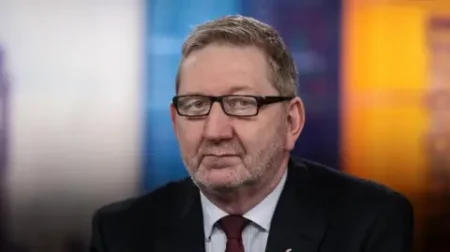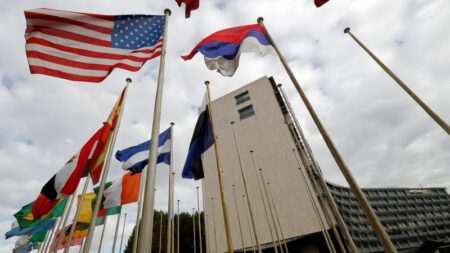In recent discussions surrounding the financial support provided to pensioners, Darren Jones, the Chief Secretary to the Treasury, articulated a compelling stance against allowing millionaires to receive winter fuel payments. This assertion comes during a period when the government is grappling with how best to navigate the complexities of financial aid amid cuts to this allowance. Jones emphasized that the winter fuel payments should be carefully targeted to those who genuinely require support, citing a fiscal responsibility that should exclude those with substantial wealth.
This decisive claim aligns with a broader context of policy changes initiated by the Prime Minister, Sir Keir Starmer, who has faced considerable backlash over proposed reductions in the winter fuel allowance for pensioners. Addressing public concerns, Starmer recently pivoted from his previous position to announce modifications that would reinstate the allowance for a larger group of pensioners, even if specific details concerning eligibility and the financial implications have yet to be disclosed.
While the Prime Minister has committed to reviewing eligibility criteria with an emphasis on making the payments accessible to additional pensioners, he has not provided clarity on how many will benefit or the timeline for implementing these changes. The ambiguity related to these aspects has caused uneasiness among both political observers and constituents who were previously cut off from these essential payments.
Furthermore, Conservative leader Kemi Badenoch has publicly supported the narrative that welfare provisions, such as the winter fuel allowance, should not be extended to what she terms “millionaire” pensioners. This sentiment echoes a broader discourse in policy circles about the appropriateness of public subsidies for those who are financially secure.
Opposing this perspective, however, political entities such as Reform UK, the Liberal Democrats, and the Green Party have vocally challenged the restricted eligibility brought forth by the Labour government, advocating for a full restoration of the winter fuel allowance. It is worth mentioning that last year, over 10 million pensioners were adversely impacted as the government introduced stricter eligibility requirements, limiting access to those who qualify for pension credit and some forms of income-related benefits. This dramatic change is estimated to have resulted in a loss of payments worth up to £300 for many.
When addressing the media, specifically during an interview on Sky News, Jones pressed that it is essential the government outlines the framework for future arrangements regarding winter fuel payments clearly. He reiterated a principle that has gradually shaped government assistance policy—wealthier individuals should not receive subsidies for energy bills. He assured the public that efforts would be made to refine and assess the criteria for determining who qualifies as a millionaire, with another review on the matter anticipated in the upcoming months.
As for the winter fuel payment itself, this is typically a one-off benefit totaling £200 for households with a pensioner under the age of 80, and £300 for those with pensioners over 80. Previously, these payments were universally available irrespective of income or asset levels, but recent adjustments by the Labour administration aimed to cut expenditures by an estimated £1.4 billion due to what was characterized as a fiscal gap left by the Conservative administration.
Calls from within the Labour party have increased for a re-evaluation of the policy, especially following noticeable electoral setbacks during local elections in various regions of England. The Institute for Fiscal Studies (IFS), a respected economic think tank, has suggested alternative approaches to broaden access to these payments. They pointed out that the necessity for a new means-testing system could complicate matters for pensioners, pushing many who may be eligible to forgo their claims due to the administrative burden involved.
In summary, the discourse surrounding winter fuel payments reflects wider socio-economic concerns and the challenges faced by governments in equalizing financial support while maintaining fiscal prudence. As the need for clarity and reform grows, the government is under pressure to establish a sustainable framework that ensures those who need assistance the most are given priority without alienating the beneficiaries and creating administrative strains. The outcome of these discussions will have significant implications for Winter Fuel Payment Policy as a whole and the thousands of pensioners who rely on such benefits year after year.










